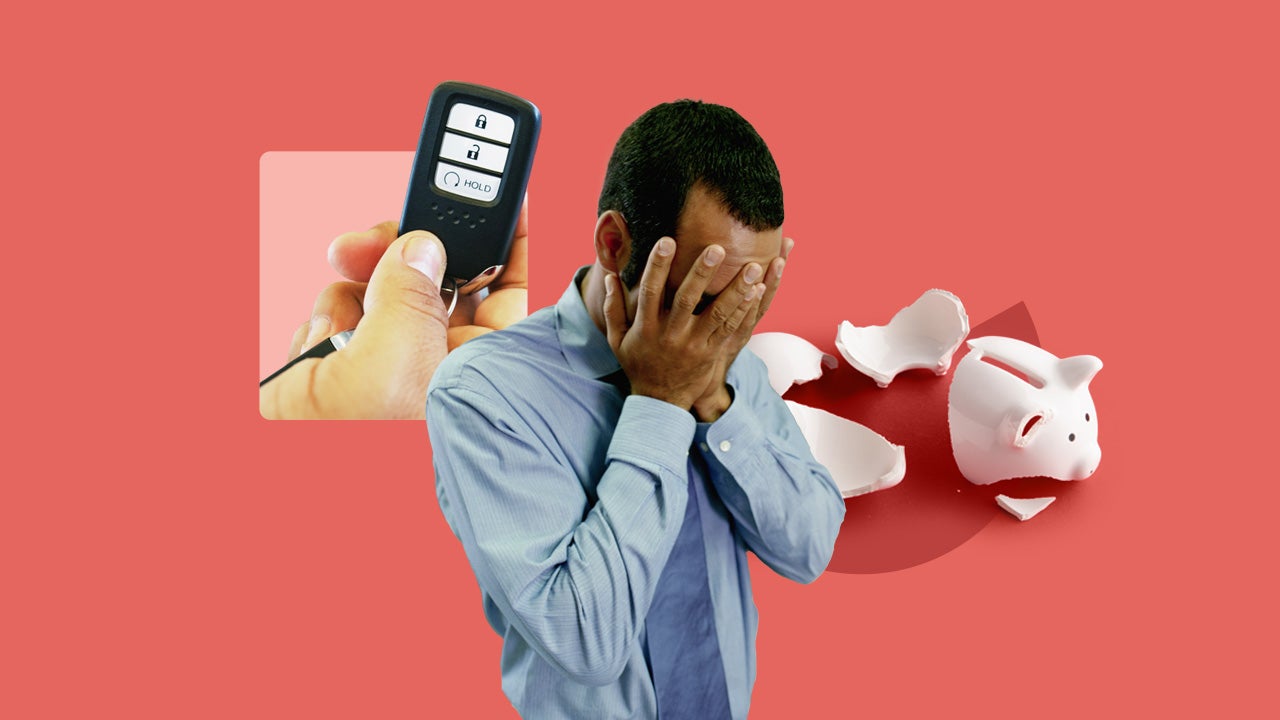Images by Getty Images; Illustration by Issiah Davis/Bankrate
See Editor’s Notes
Key takeaways
- The type of bankruptcy being filed and the equity of the vehicle are important factors to consider in protecting the car during the bankruptcy process.
- Alternatives to purchasing a car, such as public transportation or ride-sharing, should be considered if possible in order to avoid the financial burden of car ownership during bankruptcy.
- It is important to consult with a bankruptcy attorney before purchasing a car during or after bankruptcy in order to ensure that the decision is legally sound.
It’s generally unwise to spend large amounts of money before filing for bankruptcy. But for many, a working car is a necessity — even if they are already in financial distress. And buying a car after bankruptcy reduces your credit score can be difficult. Whether buying a car before filing bankruptcy makes sense depends on the car’s value, which type of bankruptcy you file and whether you have viable alternatives to car ownership.
If you file Chapter 13, you’ll have a payment plan for the auto loan and any other debt, assuming you don’t pay cash for the vehicle. So, as long as you believe you’ll be able to make those payments, buying a car may still make sense. However, if you file Chapter 7, you risk losing your newly purchased vehicle. It depends on how much equity you have, regardless of whether you use an auto loan or cash to buy the car.
Ultimately, this is a discussion to have with a bankruptcy attorney who can walk you through your situation and state regulations.
Factors to consider when purchasing a car before bankruptcy
You can buy a car before bankruptcy, but it’s not always the best course of action. Depending on your access to other forms of transportation, the value of the vehicle and your ability to secure a loan, you may want to go without until you’re in a better financial position.
Type of bankruptcy being filed
With either type of bankruptcy, you may reaffirm the loan with your lender’s consent and keep it out of the bankruptcy process. As long as you can continue making payments as agreed upon, you will not lose your vehicle to repossession.
Chapter 7 bankruptcy
Chapter 7 bankruptcy allows you to keep your vehicle if your equity is under the exemption limit. So if you are considering Chapter 7 bankruptcy, ensure your equity in the car you purchase won’t exceed the exemption amount — either $4,000 or a limit set by your state.
If the equity in your car exceeds that limit, you may be forced to sell it to pay off other creditors, or it could be repossessed and sold to cover your debts. But if you can use the wildcard exemption rule, your car could be protected from repossession.
If you financed the vehicle, you should also be current on your auto loan, or you could face repossession. Or you could return the vehicle to the lender and relinquish your responsibility for the loan once you file, but doing so could also be detrimental to your credit health.
Bankrate’s take:
Consider seeking a car worth less than your state’s exemption amount. That way, your equity in the car won’t exceed the limit, even if you purchase the vehicle outright.
Chapter 13 bankruptcy
Chapter 13 bankruptcy, on the other hand, creates a payment plan for your current debts, including anything you owe on the car. If you can’t repay this, you’ll need to sell the car yourself or turn it back over to the lender.
Alternatives available in your area
Finally, consider the alternative options for transportation in your area. If your current car is on its last legs, and you don’t have access to reliable transportation, buying a car might be a necessity.
However, living somewhere with reliable and affordable public transportation — compared to a car payment, maintenance and insurance costs — may mean you can get by without a vehicle during bankruptcy, especially if you can’t find a vehicle that is valued at less than your state’s exemption amount. Ride-sharing and friends may also be able to cover your needs.
In this case, it could be worth holding off even if buying a car won’t disrupt the bankruptcy process.
Bottom line
If you truly need a car and can find one that costs less than your state’s exemption limit, buying a car before bankruptcy may be a smart move. It’s easier to find auto financing without bankruptcy on your record. However, discuss a big purchase like this with your bankruptcy attorney first. Your attorney will understand your unique situation and be able to guide you through the specific laws and regulations in your state.
Why we ask for feedback
Your feedback helps us improve our content and services. It takes less than a minute to
complete.
Your responses are anonymous and will only be used for improving our website.
Help us improve our content
Read the full article here
















